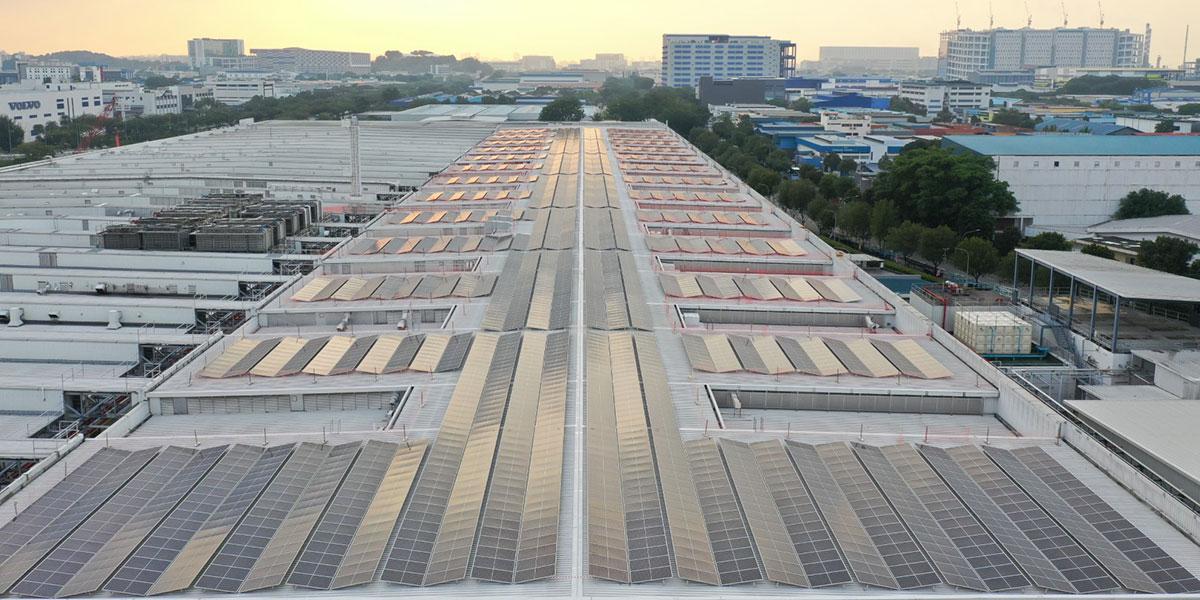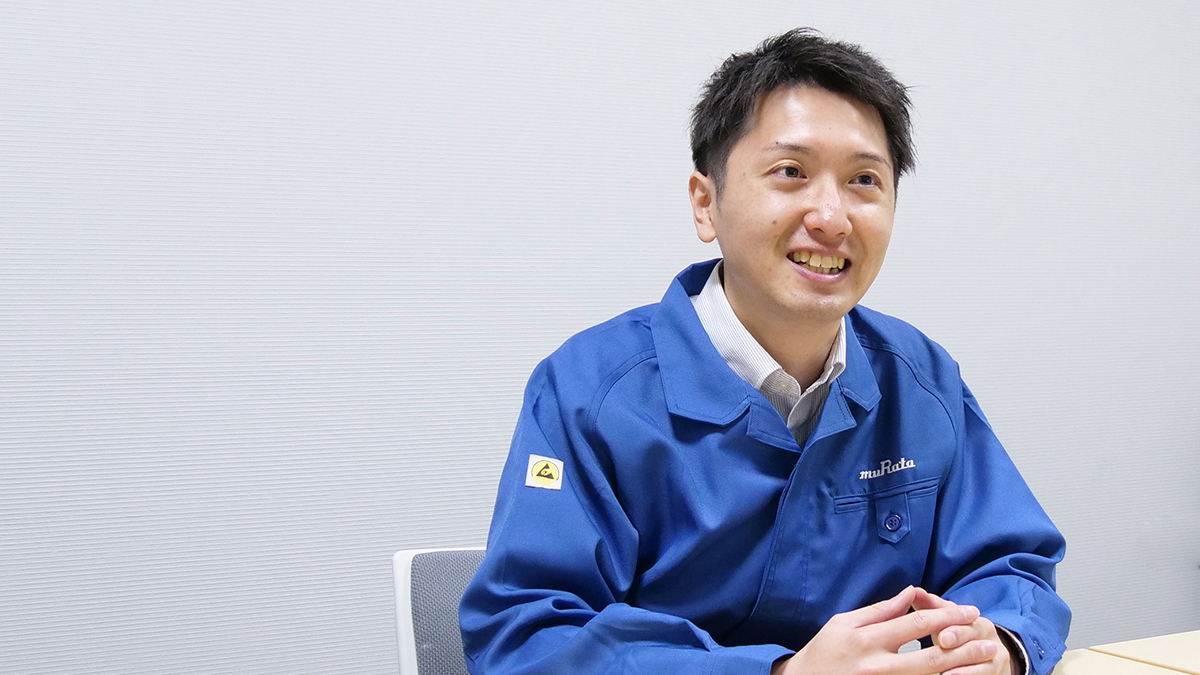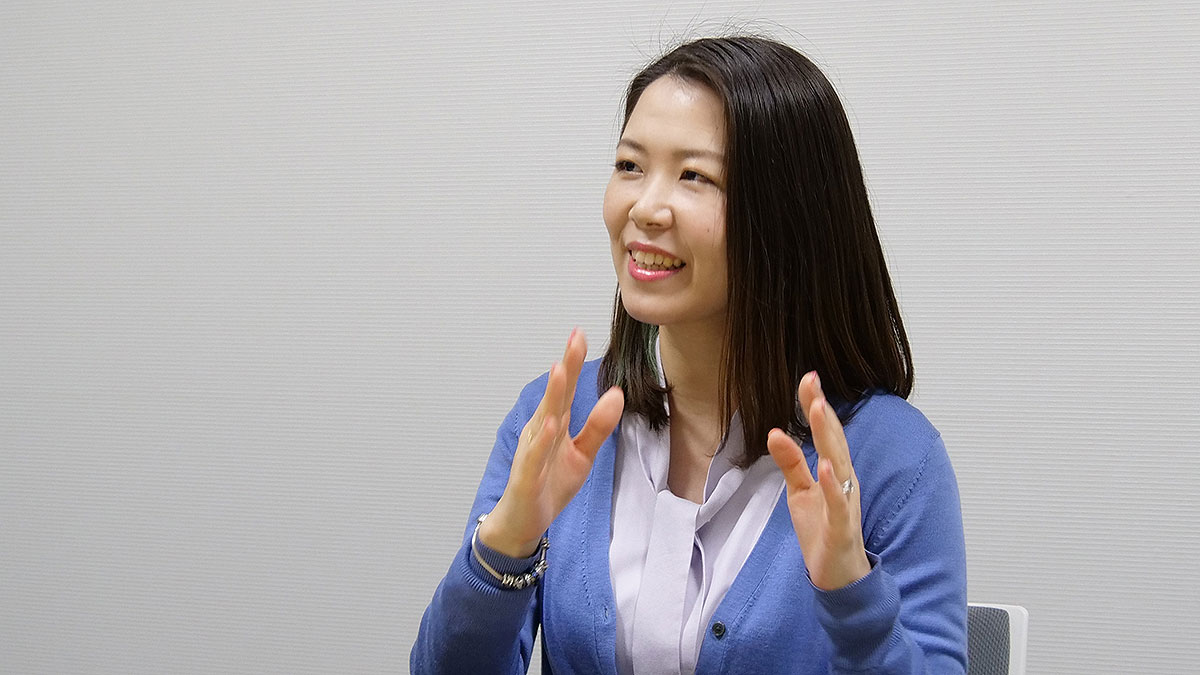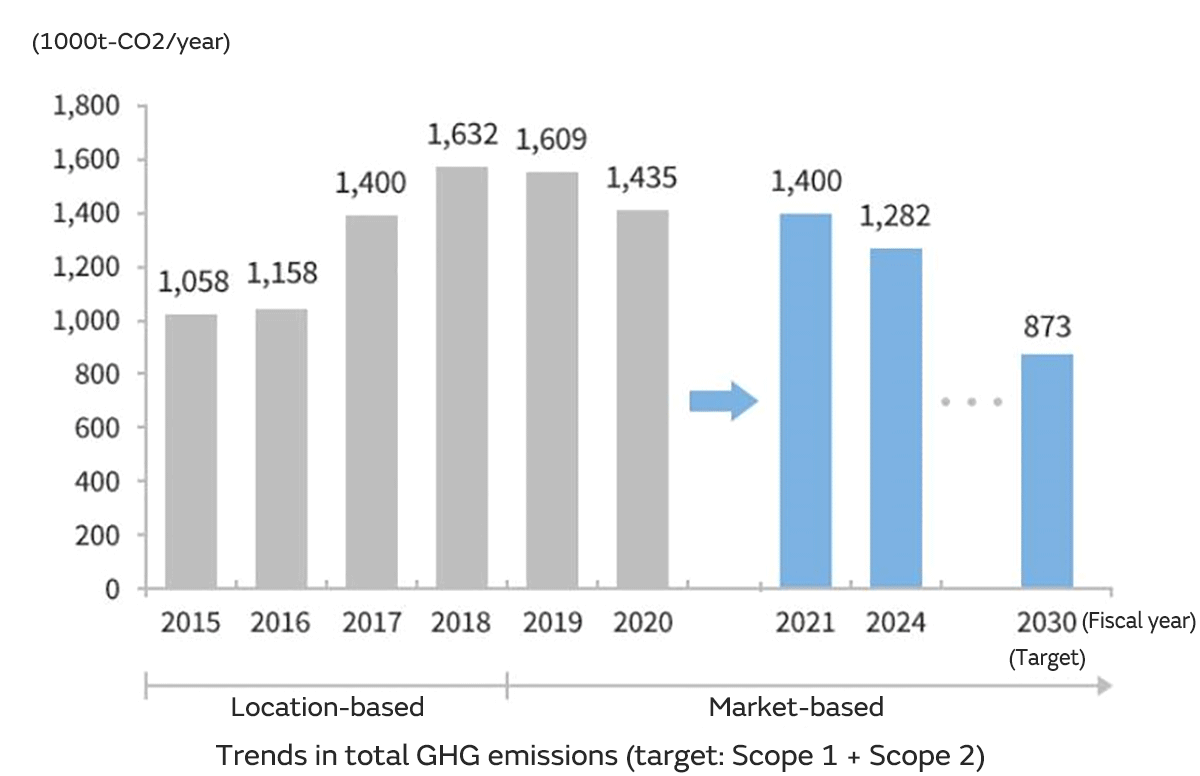Wireless Sensing Solution


SDGs×Murata
INDEX
3. Building an internal system to encourage capital investment for climate change measures
4. Autonomous and decentralized organizations accelerate climate change measures
In promoting climate change measures across the entire group, there are some cases where our efforts are influenced by the policies of each plant and geopolitical circumstances, and it is difficult to build a consensus when plants extend across foreign and domestic locations.
Under such conditions, Murata has relaxed the number of years for investment recovery and adopted internal carbon pricing as an internal company system for advancing company-wide climate change measures and promoting a shift to renewable energy.
Katsuma: “When installing and adding new, advanced equipment that can be expected to have energy-saving and other effects, we relaxed the standard number of years for investment recovery. For example, let us say that we add air conditioners that can reduce the current annual electricity bill by 100,000 yen. If the number of years for investment recovery is five years, then we can recover the investment if the additional installation cost is 100,000 yen x 5 years = 500,000 yen. Using the same thought process, if the number of years for investment recovery is 10 years, then we can allocate 1 million yen of investment. Relaxing the number of years for investment recovery has the effect of promoting investment in more advanced, energy-saving equipment.”

Fujiwara: “In addition, although it does not lead to cost reduction, when introducing equipment that has an effect on CO2 reduction, we have adopted an internal carbon pricing system that assigns a virtual price to 1 ton of CO2 to promote investment that leads to CO2 reduction.”

Katsuma: “Furthermore, we will start a ‘Sustainability Investment Promotion System’ from 2022. Specifically, we plan to introduce a management accounting system that makes it easy to execute environmental investments and expand the scope of application of the carbon pricing system as we strive to create a system that encourages environmental investment going forward.”

While climate change measures are becoming the most important corporate issue, there are cases in which projects do not proceed smoothly due to individual plant circumstances and many other cases in which there are issues with the decisions of top leaders as well as the speed of decision-making. It is important to share such issues within the Environment Department and direct our efforts toward the corporate culture and problem-solving.
Fujiwara: “In tackling climate change measures, I believe that it is extremely important that management decisions and decision-making are carried out quickly and that they be at the discretion of individuals and each department. For example, I may research examples of climate change measures, draft measures that Murata should take, and make a proposal to my superior. That proposal would then be approved and rapidly realized. Precisely because the ‘autonomous and decentralized organization’ that Murata is aiming for has taken root, I believe that we have prepared an environment in which climate change measures can be actively carried out.”
Katsuma: “I feel that the ‘autonomous and decentralized spirit’ and the attitude of first trying something without fear of failure and then improving it are the very essence of Murata.”
Fujiwara: “There are still some aspects regarding the conditions and issues at each plant that I myself do not fully understand, so I endeavored to carefully interview the management at each plant and avoid any self-serving forms of communication.”
Katsuma: “I was in charge of the mega solar project in Okayama, but while I was communicating the company-wide policies, there were some plant-specific circumstances and specification requirements, and I realized the importance of carefully interviewing the staff about those issues and making adjustments. At the plants in China and the Philippines, they voluntarily launched projects for climate change measures with similarly strong feelings and intentions. I believe that the ‘autonomous and decentralized spirit’ is strongly rooted in the plants as well.”
Murata initiatives such as these have been rated highly by external evaluation organizations, and in 2021 the company was selected for the top-rated A List* at the “CDP Climate” by the international nonprofit environmental group CDP.
*The evaluation results score companies at eight different levels from the highest leadership levels (A, A-) to the management level (B, B-), recognition levels (C, C-), and the information disclosure levels (D, D-).
Katsuma: “The reasons why Murata has been rated highly by evaluation organizations include the targets publicly set by Murata for climate change measures, our support for initiatives such as RE100 and SBT certification, the governance provided through the deliberations of the Board of Directors and the CSR Management Committee, and the fact that Murata is implementing climate change measures ‘company-wide.’ I believe that ‘company-wide’ truly applies to the example at Kanazu Murata Manufacturing.”
Murata Acquires SBT Certification for Greenhouse Gas Reduction Targets
Fujiwara: “While the company has received high marks externally, I feel that there are also issues with disseminating SDGs and climate change measures inside the company. Unless each individual employee takes on social issues, including climate change measures, as their own issue and takes action based on the conscious intention to improve society, I think that we will be unable to create a continuous cycle of social value and economic value that is Murata's growth strategy. I hope to thoughtfully address this issue going forward.”